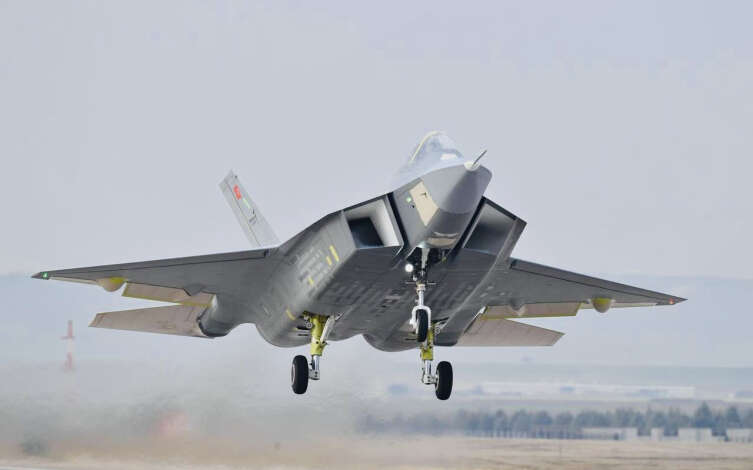Taiwan does not intend to provoke China into an armed invasion, but Taipei welcomes US Missile deployment in the northern Philippines, a top Taiwanese official said here this week.
Key Point
Taiwan’s New President William Lai’s Approach to China
On June 18, Deputy Foreign Minister Chung-kwang Tien told The STAR that Taiwan’s new President William Lai, despite being labeled a separatist by Beijing, has stated that his administration does not intend to provoke China.
According to Tien, Lai emphasized that Taiwan’s current policy is to avoid provocative actions, words, or deeds that could antagonize China.
Last Monday, another Taiwanese foreign ministry official mentioned that Lai has publicly moderated his stance from his earlier support for Taiwan independence.
Catherine Hsu, the Director General of the Department of International Information Services in the Ministry of Foreign Affairs, explained that Lai’s “pragmatic” approach towards Taiwan’s independence means “we don’t provoke.”
Military Presence and US Missile Deployment in Luzon
In April, the US Army deployed Typhon missiles in Northern Luzon for the Salaknib joint military exercises with the Armed Forces of the Philippines, highlighting a significant US missile deployment.

The US Army announced, “In a historic first, the 1st Multi-Domain Task Force successfully deployed the Mid-Range Capability (MRC) missile system to Northern Luzon, Philippines, on April 11, 2024, as part of Exercise Salaknib 24.”
Also read this :- Top 10 Military Drones of 2024: Capabilities and Features
“This US missile deployment marks a significant milestone for the new capability, enhancing interoperability, readiness, and defense capabilities in coordination with the Armed Forces of the Philippines,” the statement noted.
The missile launcher is capable of firing Tomahawk cruise missiles and SM-6 missiles.
Though it remains uncertain whether more missile deployments will occur in future joint drills between the allies, Beijing has condemned the move.
When questioned about the possibility of armed conflict between Taiwan and China, Hsu responded, “We don’t think war is inevitable. We don’t think war is unavoidable. We just want to prevent the worst from happening.”
Some observers saw the deployment as a preparation for a potential Chinese invasion to reclaim Taiwan, which certain US officials suggest could occur as early as 2027.
Chinese President Xi Jinping recently told European Commission President Ursula von der Leyen that the US is attempting to provoke China into invading Taiwan.
Regarding the missile deployment in Northern Luzon, Tien emphasized the importance of maintaining a “free and open Indo-Pacific,” with no unilateral changes to the status quo through armed force, in violation of international rules.
“Whoever can collectively protect this area should be welcome,” Tien said to The STAR, highlighting that among Taipei’s allies, the Philippines is the closest to Taiwan.
“We share the same waters,” he added. “Keeping this area secure and prosperous is our responsibility.”
Taiwan’s Maritime Claims
Taiwan also claims parts of the Spratly Islands. After World War II, the Taiwan government, then the recognized representative of China, first delineated the maritime domain in the South China Sea with the nine-dash line.
In 2016, the Permanent Court of Arbitration (PCA) in The Hague invalidated this claim based on a petition from the Philippines, ruling that it had no basis in international law. The PCA also defined the Philippines’ maritime entitlements within its 200-nautical-mile exclusive economic zone, according to the United Nations Convention on the Law of the Sea.
China has refused to comply with the PCA ruling, which other countries, led by the Group of Seven advanced economies, consider legally binding.
However, Beijing’s statement defending its maritime claim referenced the Treaty of Paris and the Treaty of Washington of 1900.
Retired Supreme Court senior associate justice Antonio Carpio recently noted that Beijing’s submission inadvertently acknowledged the validity of the Philippine claim in the West Philippine Sea, as defined in the Treaty of Washington.
When asked if the PCA ruling meant Taiwan was dropping the nine-dash-line claim, Tien reiterated what former Taiwanese foreign minister Joseph Wu Jaushieh told The STAR last year: Taiwan was not consulted on the issue, and its maritime claim remains.
Tien mentioned that historical territorial claims are complex to resolve.
The difference between Taiwan and China, Tien emphasized, lies in how they handle overlapping claims.
Taiwan, according to Tien, can negotiate with the Philippines or collaborate on maritime exploration, while China resorts to force and intimidation, including high-pressure water cannons and ramming Philippine vessels.
“They show muscle,” Tien remarked. “This is an uncivilized way.”
While China uses intimidation and aggressive tactics, Taiwan prefers to foster friendly relations. Tien stressed that unlike Beijing, Taipei does not trap aid recipients in debt or compromise their sovereignty.
“Taiwan will never, never do that,” Tien stated, adding that in dealing with aid recipients, the Chinese “always give empty promises… in the end, they cannot deliver.”
Tien also expressed Taiwan’s appreciation for the contributions of the approximately 200,000 Filipinos working or living permanently in Taiwan.
“We appreciate so much their contributions,” Tien said. “They are the ones who contribute to Taiwan’s development.”


Pingback: Greek Navy Frigate HYDRA Went Through "hell" In The Red Sea 2024 - DEFENCE AFGHANISTAN
Pingback: Chengdu J-20: China's Controversial Stealth Fighter - DEFENCE AFGHANISTAN